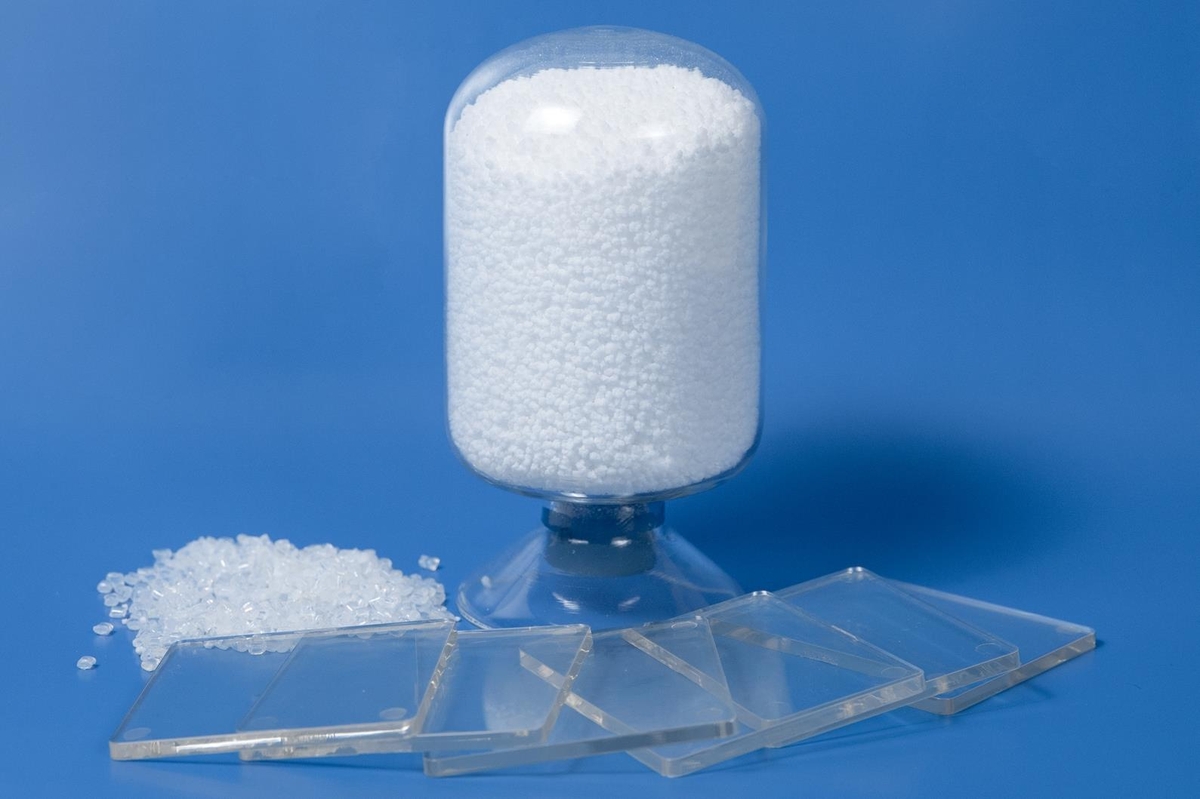Samyang Corp.'s Eco-Friendly Transparent Flame-Retardant Polycarbonate, Proven Free of PFAS
2023.12.04- SGS, a global inspection and testing company conducts tests for 74 types of per and polyfluoroalkyl substances
- Per- and polyfluoroalkyl substances, difficult to biodegrade and accumulate in the body, cause diseases. Regulatory strengthening trend worldwide
- Eco-friendly material not using flame retardants. Achieves highest flame-retardant rating, superior chemical resistance and low temperature impact strength compared to standard PC
Samyang Corporation targets the global market with its eco-friendly and safety proven transparent flame-retardant polycarbonate material.
Samyang Corporation (CEO Ho-Sung Kang) announced on the 00th that its self-developed eco-friendly transparent flame-retardant polycarbonate was tested and found to be free of harmful per- and polyfluoroalkyl substances (PFAS).
Per- and polyfluoroalkyl substances, artificial substances composed of carbon and fluorine, are widely used in electrical and electronic products, food packaging, cosmetics, textiles, and firefighting equipment due to their thermal stability and resistance to water and oil. Termed as “forever chemicals” due to their resistance to natural decomposition, they accumulate in the environment and human body, causing environmental pollution and health issues such as tumors, thyroid disruption, and hormonal imbalances.
Due to these hazards, the United States has already started regulating per- and polyfluoroalkyl substances, and the European Union is pushing for legislation to ban their use, including in harmful chemicals, with other countries also moving toward regulations restricting their use.
Samyang Corporation conducted tests for 74 types of per- and polyfluoroalkyl substances in this test. Key substances tested include △Perfluorooctanesulfonic acid (PFOS), which can cause chronic renal failure, and △Perfluorooctanoic acid (PFOA), known to increase the rate of birth defects and cause various severe diseases such as cancers and thyroid disorders. In addition, tests were conducted for Perfluorohexanesulfonic acid (PFHxS), Perfluoroalkyl carboxylic acids (PFCA), and various per- and polyfluoroalkyl substances, and the results showed no detection of these harmful substances.
SGS, a global inspection and testing company, conducted the detection test for per- and polyfluoroalkyl substances. Established in 1878, SGS operates 2,600 offices and laboratories worldwide, and is highly regarded for its inspection and verification reliability and compliance with international standards.
Samyang Corporation‘s transparent flame-retardant polycarbonate is an eco-friendly material developed by changing the molecular bonding structure based on silicone polycarbonate (Si-PC), without adding halogen-based flame retardants like chlorine and bromine, which produce toxic gases when incinerated.
It overcomes the drawbacks of traditional flame-retardant polycarbonates with decreased transparency and impact strength, and its chemical resistance and low temperature impact strength are superior to regular polycarbonate. The flame-retardant quality is also exceptional, having obtained the highest rating of “V-0” in the UL 94 vertical burn test developed by “UL (Underwriters Laboratories),” a U.S. safety standards development and certification organization. V-0 is awarded only to plastics that self-extinguish within 10 seconds when ignited vertically.
Samyang Corporation plans to expand the use of this material in various industries requiring transparency and flame-retardancy, such as automotive and home appliance exteriors and interiors, sound barriers, and medical device parts, based on its capability to maintain mechanical properties at a similar level to regular polycarbonate even when processed into thin films of about 1 mm thick.
Samyang Corporation‘s CEO Ho-Sung Kang stated, “The recent environmental pollution and human health issues caused by per- and polyfluoroalkyl substances have become a global concern, leading countries to strengthen regulations on their use. Based on the results of per- and polyfluoroalkyl substance tests, we plan to accelerate the global expansion of transparent flame-retardant polycarbonate, while also leading in the development of eco-friendly and high-functionality materials.”
Meanwhile, Samyang Group is accelerating their expansion into eco-friendly material business. Samyang Corporation last year developed the country‘s first polycarbonate containing more than 90% of post-consumer recycled polycarbonate (PCR PC) material. Additionally, they have signed a supply contract with the fishing net recycling company NETSPA and are developing plastic products for automobile interiors and exteriors, electronic devices, and household goods using recycled plastic pellets from fishing nets, with commercialization on the horizon.
Samyang Innochem, a chemical subsidiary, has completed a production plant for the white bio material “Isosorbide” using corn, and Samyang Packaging is expanding its recycled plastic business, operating a recycling facility for 21,000 tons of PET chips.

